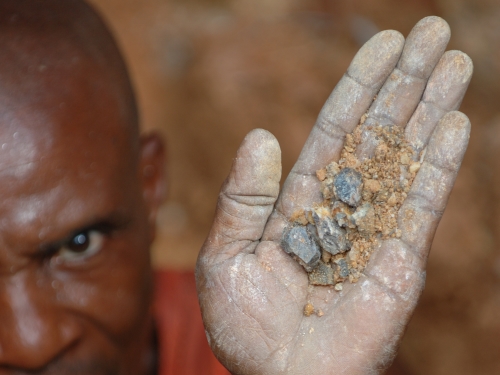
This article was originally published by the Institute for Security Studies (ISS) on 18 May 2015.
In Africa, and indeed in most developing countries across the globe, extractive industries have sparked much controversy and debate.
While these industries bring with them the promise of economic growth and social development, they have, in many cases, instead contributed to the devastation of the countries’ governance systems and economic structures, which has led to an increase in poverty in resource-rich areas.
This has seen a rise in human rights abuses, and at times irreversible damage to the environment. Indeed, that promise of economic and social transformation has rarely come to fruition.
History has seen many instances of the siphoning off of Africa’s riches, however, present-day culprits are not only from outside of the continent, but include unaccountable African officials and corporations. Foreign organisations collaborate with illegal transnational networks that facilitate the illicit flows of extractives from impoverished countries. The result is the persistence of grinding poverty in areas that appear to be blessed with plentiful resources. This paradox is visible in Angola, the Democratic Republic of the Congo (DRC), Nigeria and a dozen other African nations.
As the United Nations observed in 2002, Western mining companies that deal in rare metals, gems and other resources have been deeply involved in the large-scale and systematic robbery of the DRC’s mineral wealth. These companies worked with a network of cross-border elites from neighbouring countries, including rival groups of politicians, military leaders and criminal elements. This facilitated a self-financing war economy centred on mineral exploitation.
Worldwide, many states have financed their development through resource extraction. However, this has not worked well in Africa. By some estimates, the continent holds as much as 30% of global mineral reserves, and even higher percentages of the world’s gold, platinum, diamonds and manganese. New exploration continues to reveal ever-larger reserves, yet poverty and underdevelopment continue to deepen in resource-rich states.
According to the 2014 Human Development Report, 18 of the 20 countries ranked the lowest according to the Human Development Index (HDI) are in Africa, with Niger in the bottom position (187) followed by the DRC (at 186). This is the result of poor natural resources governance, corruption, illegal cross-border networks, illicit financial flows and money laundering – especially in the extractive industry.
It is estimated that Africa loses a total of US$38.4 billion a year through trade mispricing and US$25 billion through other illicit flows. This is more than what Africa receives through aid and foreign direct investment. A joint report by the African Development Bank and Global Financial Integrity found that a staggering 60-65% of this lost revenue disappears in commercial transactions by multinational companies.
Corruption is arguably the most important driver of the misappropriation of natural resources, inefficient revenue flows and abysmally low levels of economic growth in these developing countries. Anti-corruption commissions have been created in several African states but have had limited, if any, success in curbing corruption.
The last decade has further seen a proliferation of initiatives aimed at improving the governance of the extractives sector. This includes the Extractive Industry Transparency Initiative (EITI); the Kimberly Process Certification Scheme in 2003; Publish What You Pay; the Revenue Watch Institute and many others. EITI, for example, has established a global standard whereby countries are required to fully disclose taxes, royalties and other fees their governments derive from oil, gas and mining. However, despite these global efforts, things have not changed much. While some countries have ratified initiatives such as the EITI, others, including Kenya, are yet to do so.
There are strong correlations between extractives industries, corruption and fragility. Kenya, for instance, has witnessed several examples of what can happen when corruption becomes so ingrained that a nation’s security forces are unable to effectively protect its people. This was seen in resource-rich areas like the Turkana-East Pokot border, where clashes claimed more than 54 lives, and the recent Garissa University College attack, in which 147 people died.
According to the Fragile States Index Rankings 2014, Kenya is placed 18th in the world out of 178 states. Number one on that list is neighbouring South Sudan, followed by Somalia. Yet in the Corruption Index, Kenya ranked position 145 out of 175 countries, South Sudan 171 with Somalia being the last at 174.
Local and international companies continue to declare huge profits while poverty levels continue to increase in most African countries. This points not to exceptionally high business talent, but more likely to exceptionally low corporate ethics. Unreasonable resource extraction contracts and payments made to public authorities and officials easily go under the radar. Intra-company transactions are also often unsupervised and can become a vehicle for tax avoidance.
As a starting point, African governments should adopt national strategies that clearly set the terms for the development of their natural resources, and which are aimed at poverty reduction and inclusive growth. Natural resources must be managed efficiently and the revenues shared fairly, and strategies must focus on projects that can generate more jobs through links with the local economy, which should include human capital development.
Processing natural resources prior to export would further bring more value and benefits to the poor. Investment in the extractive sector should therefore be a priority for governments to ensure that there is sufficient local skills and capital to extract, process and export these resources. Building on the Africa Mining Vision, governments should put transparency and accountability at the heart of their extraction policies.
Sebastian Gatimu is a Researcher in the Governance, Crime and Justice Division at ISS Nairobi.
For more information on issues and events that shape our world, please visit ISN Security Watch or browse our resources.

